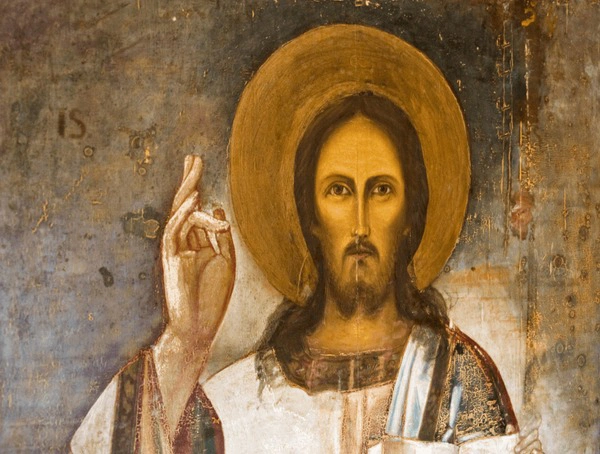
The Transformative Power of Faith: Lessons from Matthew Chapter 8:Verse 13
Matthew Chapter 8:Verse 13 illustrates the power of faith through the story of a centurion whose servant is healed by Jesus. The centurion's recognition of Jesus' authority and his humble approach reveal the importance of belief and humility in accessing divine intervention. This narrative offers timeless lessons for modern believers, encouraging them to trust in God’s promises and embrace others with love, breaking down societal barriers.
Joshua Brooks
04/12/2024 - 7 months ago

Understanding the Context
The verse from Matthew Chapter 8:Verse 13 captures a pivotal moment in the New Testament, where Jesus performs a miracle based on a centurion's faith. This verse is part of a larger narrative where Jesus is approached by a Roman centurion who seeks healing for his paralyzed servant. The centurion exhibits profound faith, acknowledging Jesus' authority to heal from a distance. This encounter highlights the spiritual truth that faith can transcend physical proximity and societal barriers, illustrating the power of belief in the divine.
At the time of Jesus, Roman centurions were respected military officers, yet they were often seen as oppressors by the Jewish people. Despite this, the centurion's humility and recognition of Jesus' power stand out. He acknowledges that he is not worthy of having Jesus enter his home, which reflects a deep understanding of Jesus' spiritual authority. This acknowledgment of Jesus' power without physical presence underscores a key theme in the Gospel: the role of faith in accessing divine grace and intervention.
The centurion’s request and Jesus’ response serve as a metaphor for the inclusiveness of God’s kingdom. The centurion, a Gentile, is not part of the Jewish community yet receives grace and healing for his servant. This narrative reinforces the message that faith is not confined by ethnicity or status. Jesus' willingness to heal the centurion's servant demonstrates His mission to reach all of humanity, inviting everyone to partake in the blessings of faith.
Faith and Healing
Faith plays a central role in the healing of the centurion's servant. When Jesus tells the centurion, "Go; let it be done just as you believed it would," He emphasizes that the miracle occurs because of the centurion's faith. This statement underscores the truth premise that faith and belief are often prerequisites to experiencing God’s miraculous works. Jesus acknowledges the centurion's faith as the catalyst for the servant's healing, highlighting the transformative power of belief.
The nature of the centurion's faith is significant because it is not based on physical evidence or previous miracles he witnessed. Instead, it is rooted in his understanding of authority and trust in Jesus' word. The centurion believes that Jesus can command healing just as he commands his soldiers, demonstrating a profound understanding of spiritual authority. This level of faith is both commendable and exemplary, encouraging believers to trust in God's power beyond what is visible.
In a broader sense, this story illustrates that faith is accessible to all, regardless of background or societal position. The centurion's faith becomes a model for believers, showing that trust in God can lead to remarkable outcomes. This narrative invites readers to reflect on their own faith and consider how they trust in God’s promises, even when the circumstances seem challenging or the outcomes uncertain.
Lessons in Humility
The centurion's interaction with Jesus is also a lesson in humility. Despite his high status as a Roman officer, the centurion approaches Jesus with respect and humility, recognizing his own unworthiness. This humility is critical because it opens the door for divine intervention. By acknowledging his limitations and seeking Jesus’ help, the centurion exemplifies a posture of dependence on God, which is crucial for spiritual growth.
Humility in this context is not about self-deprecation but about recognizing one's need for God. The centurion’s attitude contrasts with the pride often associated with power and authority. His willingness to submit to Jesus' authority serves as a reminder that true strength comes from acknowledging our dependence on God’s grace. For believers, this narrative encourages the adoption of a humble heart, open to receiving God’s intervention and blessings.
Furthermore, Jesus’ response to the centurion’s humility is instructive. He not only grants the request but also commends the centurion’s faith, setting it as an example for others. This acknowledgment by Jesus highlights the value of humility in the eyes of God. It reminds believers that God honors those who approach Him with a humble spirit, ready to receive His will and guidance.
Implications for Modern Believers
For modern believers, the story of the centurion and his servant offers several insights into the nature of faith and its impact on everyday life. It challenges individuals to examine the strength and depth of their faith, especially in situations that seem hopeless or beyond human control. The centurion’s unwavering belief serves as an inspiration for today’s Christians to trust in God’s promises, even when the path forward is unclear.
This narrative also encourages believers to reflect on their interactions with others, particularly those who are different from them. The centurion and Jesus’ interaction breaks down social and cultural barriers, demonstrating that faith is a unifying force. In a world often divided by differences, this story reminds Christians of their call to love and accept others, just as Jesus embraced the centurion, irrespective of his background.
In conclusion, Matthew Chapter 8:Verse 13 is a powerful testament to the transformative power of faith and humility. It invites believers to trust in God’s ability to work miracles in their lives and challenges them to approach God with humility, ready to receive His grace. By embracing these truths, modern believers can experience the fullness of God’s love and purpose, just as the centurion and his servant did.




















